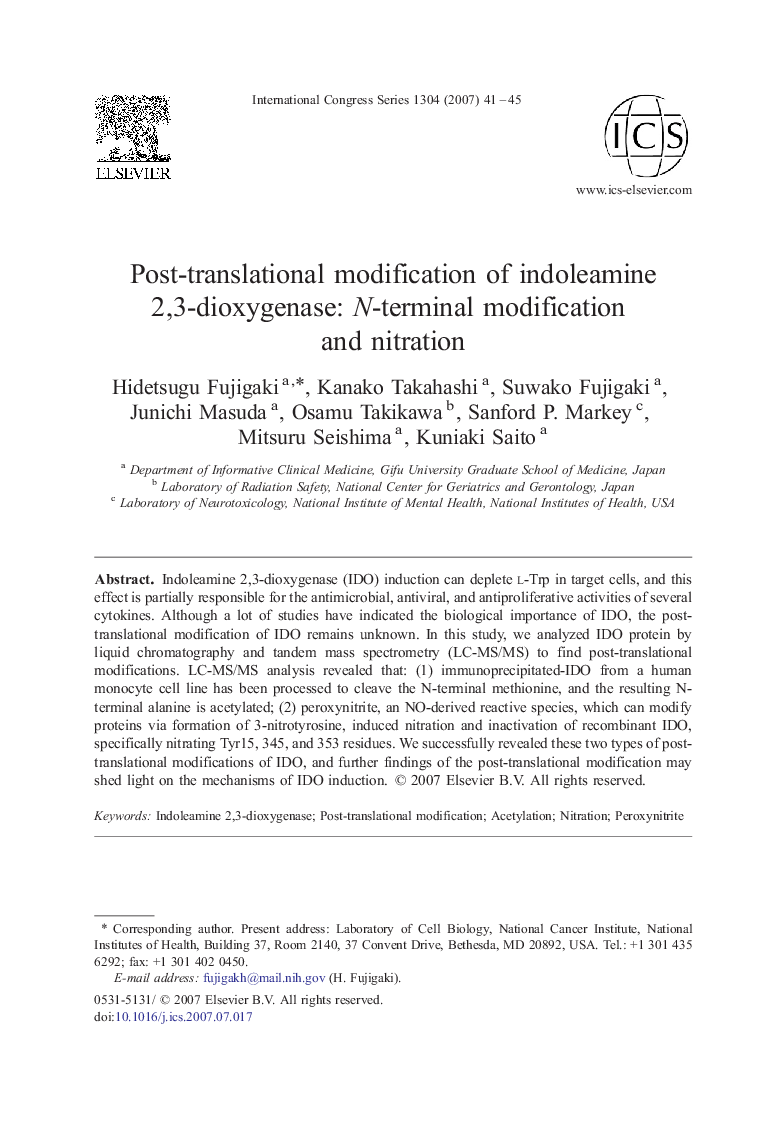| Article ID | Journal | Published Year | Pages | File Type |
|---|---|---|---|---|
| 2576373 | International Congress Series | 2007 | 5 Pages |
.Indoleamine 2,3-dioxygenase (IDO) induction can deplete l-Trp in target cells, and this effect is partially responsible for the antimicrobial, antiviral, and antiproliferative activities of several cytokines. Although a lot of studies have indicated the biological importance of IDO, the post-translational modification of IDO remains unknown. In this study, we analyzed IDO protein by liquid chromatography and tandem mass spectrometry (LC-MS/MS) to find post-translational modifications. LC-MS/MS analysis revealed that: (1) immunoprecipitated-IDO from a human monocyte cell line has been processed to cleave the N-terminal methionine, and the resulting N-terminal alanine is acetylated; (2) peroxynitrite, an NO-derived reactive species, which can modify proteins via formation of 3-nitrotyrosine, induced nitration and inactivation of recombinant IDO, specifically nitrating Tyr15, 345, and 353 residues. We successfully revealed these two types of post-translational modifications of IDO, and further findings of the post-translational modification may shed light on the mechanisms of IDO induction.
